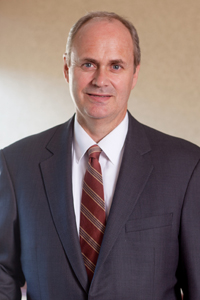Provost search: Diacon talks educational philosophy

Diacon
February 3, 2012
Todd Diacon is the first one to tell you he does not have all the answers.
But the provost finalist from the University of Massachusetts Amherst also said during his undergraduate forum Thursday he has enough experience as a higher-education administrator to know who to ask, where to look and what to read so he can get a satisfactory answer.
Diacon is the last of four candidates to replace Provost Robert Frank to visit the university. He spoke at length about his philosophy of education,saying he likes being able to use ideas from other universities and not having to start from scratch every time he encounters a new problem.
Diacon said if he were chosen as provost he would want to make sure Kent State was a community that supported both students who were excelling academically and those who were struggling.
“I want to build a community so that when you have that bad experience, your initial intention is not to leave but to stay and to improve and to graduate,” he said.
Diacon said he has experience at, and likes, large state universities such as Kent State because they have broad ranges of majors, facilities and faculty.
Diacon dismisses tenure controversy
Provost finalist Todd Diacon spoke briefly after his undergraduate forum Thursday about an incident during his time as history department head at the University of Tennessee.
According to stories that appeared in the Tennessee Journalist, a black professor in Diacon’s department named George White applied for tenure in 2006 and was denied. He claimed he was denied because of race and said white faculty members were not held to the same standards he was and he sued the university in 2007.
Diacon said he was one of four defendants named in White’s lawsuit, but he said he supported White.
“I was named in the suit, but I was the only person in the suit that was named that had supported tenure,” he said. “As soon as the depositions were taken, I was immediately dropped from the suit.”
Two internal committees at the university sided against White in 2007. A Knoxville News Sentinel story cited both the Office of Equity and Diversity and the faculty senate appeals committee as saying despite procedural problems with White’s application such as not having all of his documents, he was not denied due to racial factors.
Diacon said White’s incident gave him perspective on dealing with difficult personnel decisions, which is something he will have to do as provost.
“A provost makes all kinds of difficult decisions in tenure and promotion cases and in other evaluations … (this) just means that I have experience in them,” he said.
The Knoxville News Sentinel reported in 2010 White had agreed to settle with the university for $100,000, and said both parties wanted to settle.
“George White has moved on with his life,” his lawyer Carol Nickle said in the Sentinel story. “ … He decided to put this behind him and accept the settlement.”
“I think the large state university is the best deal going in higher education because its size gives us the resources to do a lot of things,” he said.
Despite the advantages of large state universities, Diacon also said there has to be a balance between a school large enough to provide lots of experiences but small enough to allow students to get involved and personalize their education.
“I always say the key to student success is to take the advantage of the big university and then to make it smaller so that you’ll establish your place within the big university so you’ll succeed,” Diacon said.
Diacon said if chosen he would emphasize student involvement with the provost’s office as well.
“I don’t think you can say you have a legitimate student success initiative in place if there’s not an expectation of cooperation between student affairs and the provost’s office,” he said. “That just has to happen.”
Diacon said his other plans if he were chosen as provost included making changes to improve the continuity of advising. He also said he would be interested in sitting down to lunch with students on a regular basis to hear the opinions of average people rather than just student leaders.
Diacon said while he is not familiar with the other candidates, he thinks he has qualities that will help him stand out. During his time at the University of Tennessee he said he oversaw departmental reviews from accounting to anthropology, and from art to nuclear engineering, which helped him learn the different markers of success in different fields.
“It’s probably unusual to have someone who has as broad of an experience throughout all aspects of the university as I have,” he said. “I think that’s what makes me different.”
Contact Carrie Blazina at [email protected].
























